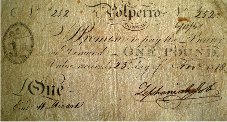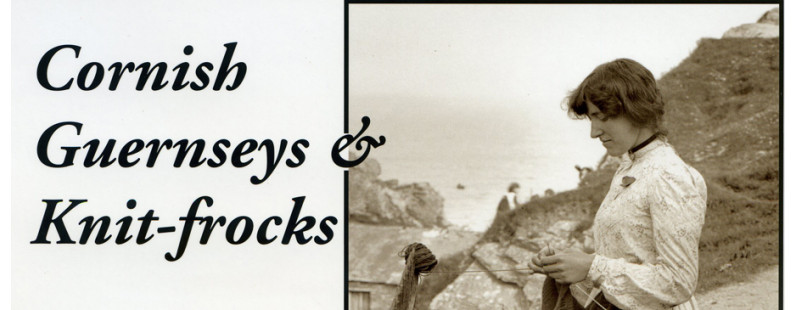Polperro Postscripts
A blog for anyone with an interest in Polperro, publishing and people... with occasional musings on history and humanity.
Subscribe
Recent Posts
Zephaniah Job, the 18th century ‘smugglers’ banker’ of Polperro, acted as a financial and insurance agent to the extent that he was, to all intent and purpose, operating as a banker. He loaned money at interest and received money on deposit.
Such transactions were invariably accompanied by a promissory note of some sort, not unlike the note of hand Job obtained from Sir Harry Trelawny in 1788 and, since a bank note was simply a printed promise by the bank issuing it to pay the bearer, on demand, a sum of money, it seemed quite natural to Job that he should eventually begin issuing his own notes for fixed sums of money. Early in 1806, having obtained a banking licence for £20, he asked a London printer to prepare engraving plates for bank‑notes of £1, £2 and £5 denominations payable by Christopher Smith Son & Co. one of the London merchant bankers with whom he dealt.
Christopher Smith was an Alderman and Sheriff of the City of London who unsuccessfully contested the parliamentary seat for East Looe in 1806, but later became MP for St Albans and Lord Mayor of London in 1817. His association with Job continued for many years, the two men frequently exchanging gifts; in 1819, Job wrote to the Alderman offering to provide 'a bottle of the best for you should you honour me with a visit at my humble cottage.'
The Polperro bank‑notes issued by Job were among the first to be circulated in Cornwall, but he was always careful to observe the essential condition of having sufficient coin available in exchange for his paper money. The custom of issuing paper money had originated during the wars with France when the enormous cost of the military effort drastically reduced the amount of gold and silver coinage in circulation. Bank of England notes were declared legal tender and occasionally Job found his creditors preferring them to his own, as in 1819 when he was obliged to exchange six Bank of England £1 notes for his own, observing: ‘I have the satisfaction to know that my notes are readily received by every banker in the country and by every respectable merchant and shopkeeper.’

When, only a few years later, he was to die unexpectedly there was still more than enough cash, bonds, bank notes and other funds due to him on all the promissory notes on his bank then in circulation to be honoured.
Two of Job’s bank notes have now been acquired by the Polperro Heritage Museum and will be on view in 2013.

